Sitting on our verandah at Rosario’s Inn, in the shade of the huge mango tree which is host to a fruiting pepper vine, assorted visiting birds and butterflies and its own motionless lizard, we laughed as I read aloud this excerpt from Kavita Watsa’s Brahmins and Bungalows:
“All along the road, blinds were pulled and shutters closed, pigs were shut up in their pens, and mongrels lay stretched in the shade with palm fronds and hedge leaves drooping listlessly over their forms. It seemed as if the very plants had given up trying to stand up straight, and as for people, there were simply none to be found.
Given this restful state of affairs, we were taken aback to find on Colva Beach a restaurant that was not only open, but employed a waiter who was awake. He detached himself slowly from the bar, surveyed us for a whole minute with something approaching interest, and finally offered us a table, since we did not seem to want to go away. The restaurant was only a thatched shack, with lizards lying drugged and immobile on the walls and cracked plastic menus on the sagging tables, but it had a certain charm that perhaps only the hungry and heat struck could appreciate.
As we waited to be served, time inched its way forward at a pace that I have only ever borne witness to in Goa: the coconut feni arrived after an eternity…. When at last the dishes arrived, they were placed before us with infuriatingly deliberate lethargy… the legendary Goan fish curry, of which I had been dreaming for a week, was a dismal little dish, decorated with a few slices of vintage tomato and complemented cleverly by under cooked indigestible rice and a wilted salad.
‘Your food is just terrible’, I said….’Yes’, said the man disinterestedly, flooring me with a single word as he investigated his ear with a splintered Cheetah brand matchstick.”
It all rang true. Michael and I had been in a torpor ever since arriving in Goa, and had by now recognised that it was the habitual state of being. Rickshaw drivers couldn’t be bothered to take us the few sun struck kilometres to the beach that we were usually too enervated to walk, and many businesses were empty all afternoon as siesta took place. Even the proprietors of the Inn just didn’t care about the guests, much; if they wanted to go elsewhere for free internet connection, then do so. A lot of implied shoulder-shrugging goes on in Goa.
Remembering that in the Land of Lotus Eaters it is “always afternoon”, most guests at Rosario’s seem to succumb happily to this state, and take several weeks after arrival before attempting any exertions such as visiting Margao, the nearest big town, or planning short train journeys to Gokarna (reported to be even more “laid back” than here, in which case I am mystified that any Gokarnans ever stand up at all). At breakfast we gradually met the annual long-stayers as they arrived singly or in pairs for their six months at this ‘other home’. Most aged around retirement age, except for the occasional young backpackers who stayed a night or two, they were a pleasant bunch of India lovers who had been coming here for decades, mainly from Europe or Australia. We did begin to smile about the ‘retirement home’ aspect of Rosario’s Inn, but with appreciation, although Benaulim was certainly not ‘for us’.
Outside Rosario’s, across a rough playing field and a shaded side road, the small main strip of shops and restaurants, all tourist focused, merge into the old neighbourhood increasingly dominated by new apartment blocks, new guest houses, in bright shades of purple, blue, yellow or any other tone that takes the owner’s fancy. Some original Goan houses still remain, their deep verandahs and red tiled roofs tucked under giant mango trees and even taller banyans. Pigs and chickens rustle amongst the undergrowth; dogs lie half on the roadway. Small churches appear now and then, as Goa is a largely Christian state, due to its Portuguese colonial background. Water buffalo slouch along the roadside, or wallow in the flooded rice fields on the edges of town.
One evening we walked the long beach enjoying the cooler air, amongst sunburnt Russian tourists in bikinis (even the plump grandmotherly ones), the modestly clothed Indian tourists skipping and splashing, the lilting 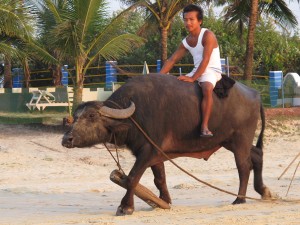 beached fishing boats, past dark skinned fishermen folding their nets. In a more lonely stretch of beach, something rolled in the waves. Then it was gone, and I wondered if I had imagined the sight, but feared it was a drowned body. But Michael said no, it was a water buffalo, revelling in the sea. I was amazed at how long its big dark mass could stay submerged; now and then it surfaced for air, then again dropped into the depths. Later, as we retraced our steps, we saw its owner leading it by a rope back up the dunes.
beached fishing boats, past dark skinned fishermen folding their nets. In a more lonely stretch of beach, something rolled in the waves. Then it was gone, and I wondered if I had imagined the sight, but feared it was a drowned body. But Michael said no, it was a water buffalo, revelling in the sea. I was amazed at how long its big dark mass could stay submerged; now and then it surfaced for air, then again dropped into the depths. Later, as we retraced our steps, we saw its owner leading it by a rope back up the dunes.
Some days we took the rattly, crowded bus into the nearest town, Margao, and once to the capital, Panaji. It was scorching and sweaty work to walk the streets, but in Panaji a breeze blew from the wide river that is part of Goa’s age-old trading allure. This Arabian Sea port was (and is) an important part of the spice route, and had been ruled by the Portuguese for several hundred years, until independent India forcefully reclaimed it in the later twentieth century. Hence, Goans (I have heard) still do not see themselves as fully Indian, but as a more ‘sophisticated’ Europeanised people. The Inquisition, which had tormented the locals into Catholicism, had left an enduring legacy of Christianity, and 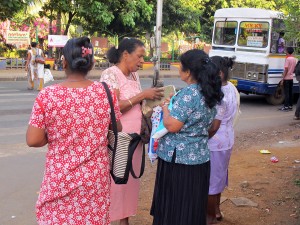 surnames such as D’Souza, Gonsalves, Pereira. Goan women generally do not dress in Indian attire, but wear European style frocks (although often in satins, lace and embroideries that reveal a more Indian love of decoration). Beer and wine are unquestionably acceptable in restaurants (no teapots disguising beer here!), and the shops that sell alcoholic drinks are not lurking in dark corners with caged counters, as they are in most Indian states. Panaji is a lovely, undulating, steamy but breezy small city with a cosmopolitan air and some charming streets of colonial houses. Margao is more ramshackle, but an easy going friendly place, where traffic police try hard to teach motorists the new concept of pedestrian crossings. Being too languid to care, we did not venture further afield in Goa, so the famous hippie areas remain a mystery to me, as do the apparently lovely coves and beaches further north and south.
surnames such as D’Souza, Gonsalves, Pereira. Goan women generally do not dress in Indian attire, but wear European style frocks (although often in satins, lace and embroideries that reveal a more Indian love of decoration). Beer and wine are unquestionably acceptable in restaurants (no teapots disguising beer here!), and the shops that sell alcoholic drinks are not lurking in dark corners with caged counters, as they are in most Indian states. Panaji is a lovely, undulating, steamy but breezy small city with a cosmopolitan air and some charming streets of colonial houses. Margao is more ramshackle, but an easy going friendly place, where traffic police try hard to teach motorists the new concept of pedestrian crossings. Being too languid to care, we did not venture further afield in Goa, so the famous hippie areas remain a mystery to me, as do the apparently lovely coves and beaches further north and south.
Lotus-eating in Goa was a blessing for us after the rigours of North India and my illness in Varanasi; we rested, ate fish, chicken and clean salads (along with the lotus), while avoiding mosquito bites and rabid dogs. Foreign visitors, we were told by a disapproving rickshaw driver, encouraged dogs to be friendly, and because there is rabies in Goa, local people were also bitten and infected. An English woman had recently died after patting a dog on a beach, because it licked her scratched hand. But why, I wondered, did the Goans themselves not work to eliminate rabies in their dogs, and to control the dog population. Perhaps it was just too hard. So too, it seemed, was arising from bed, for the taxi driver who had arranged to take us to Margao one early morning to catch our train to Hampi…
Lovely Goa, land of feni and sausages, church bells and beaches, farewell forever, I thought, watching from the window as the Howrah Express climbed the beautiful western ghats towards Karnataka, into yet another realm of this journey.
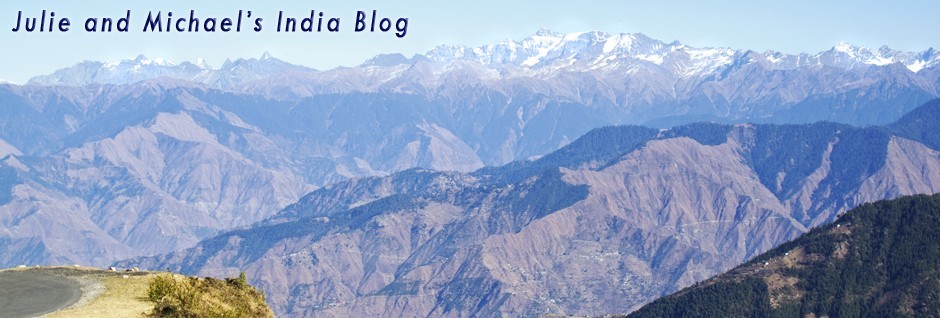
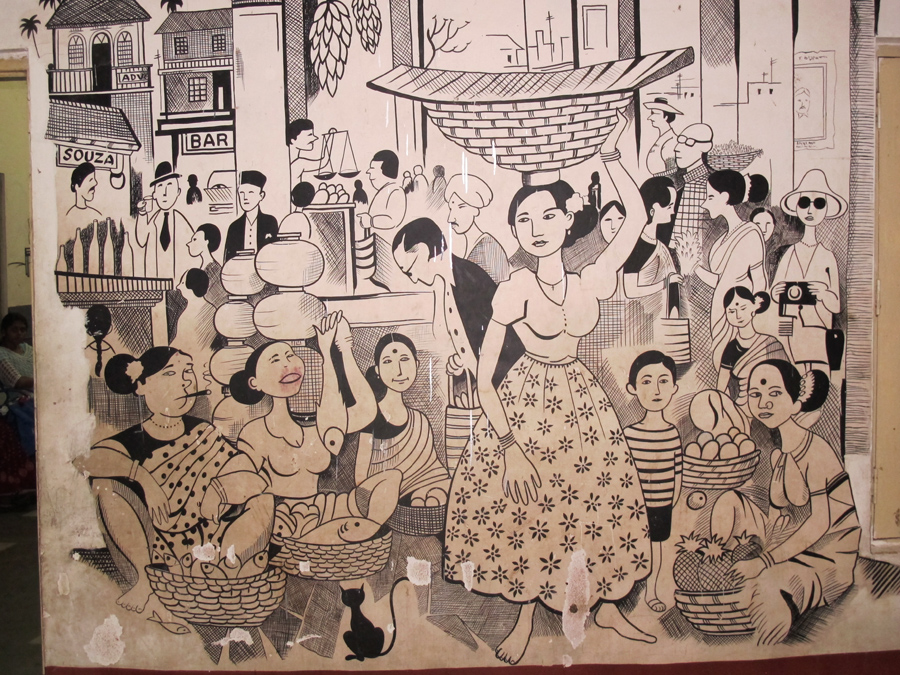
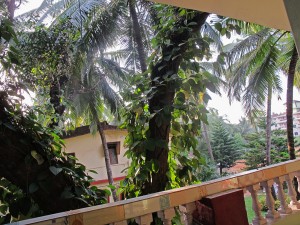
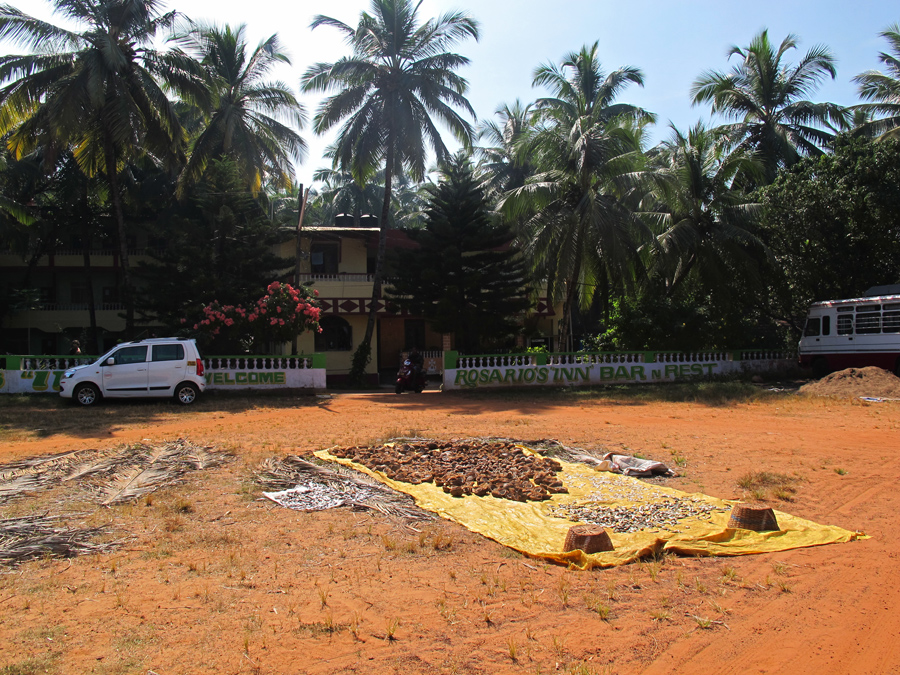
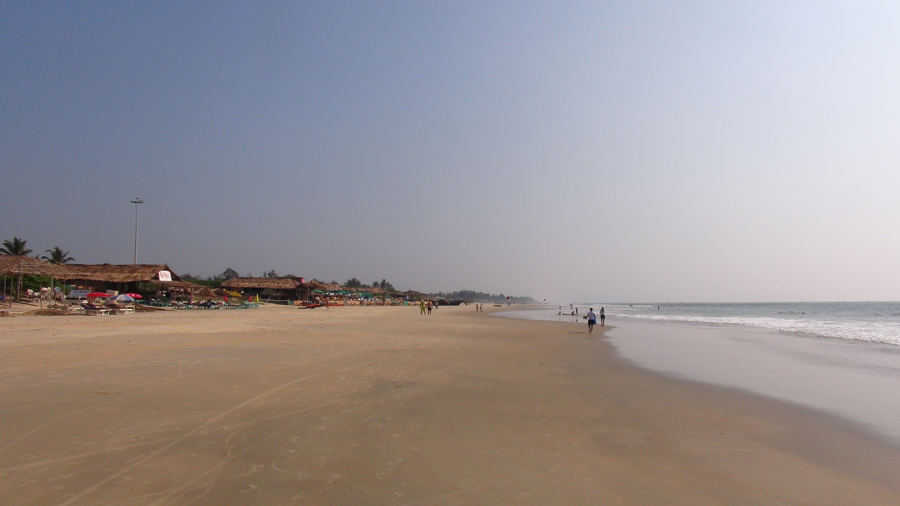
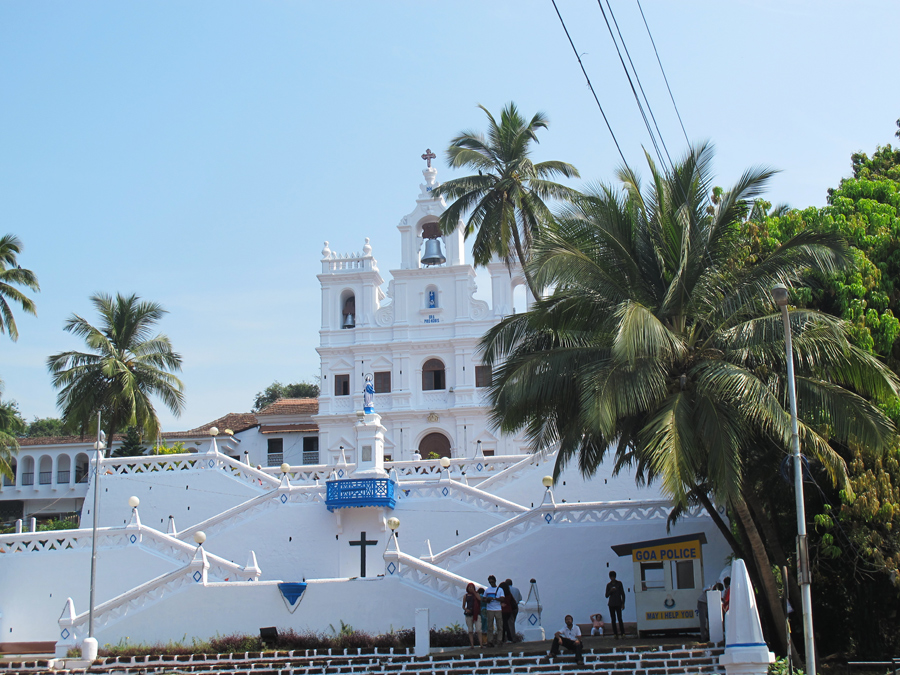
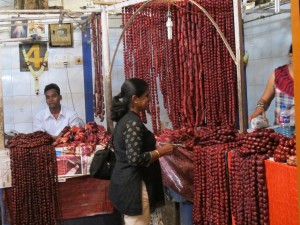
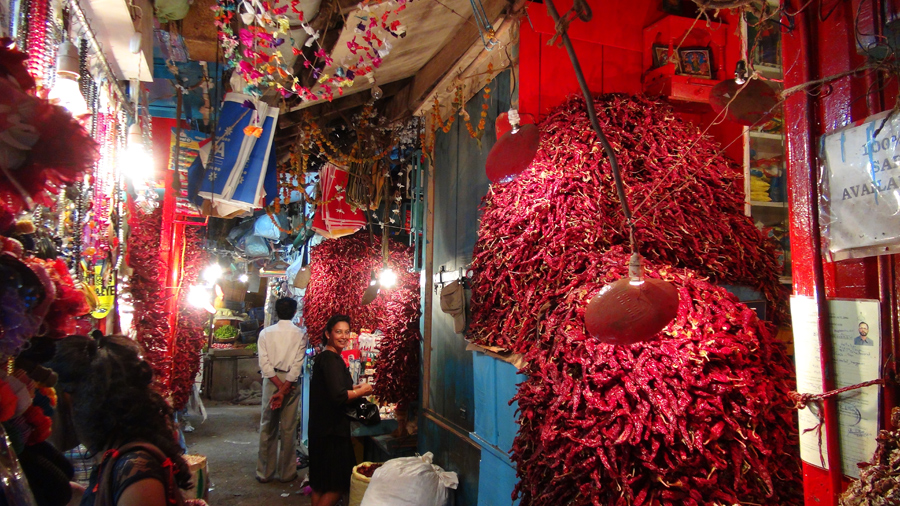
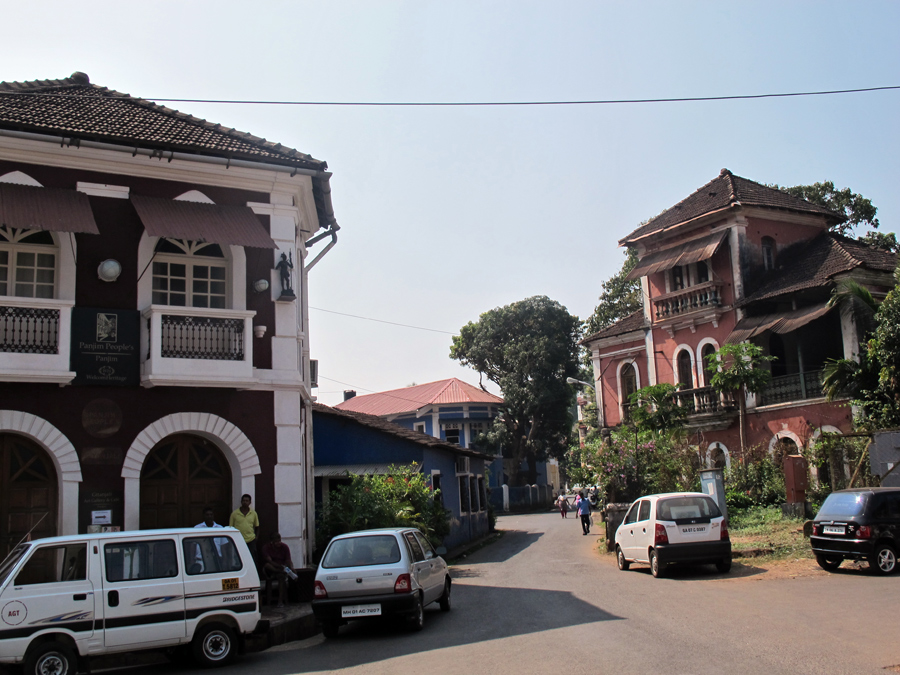
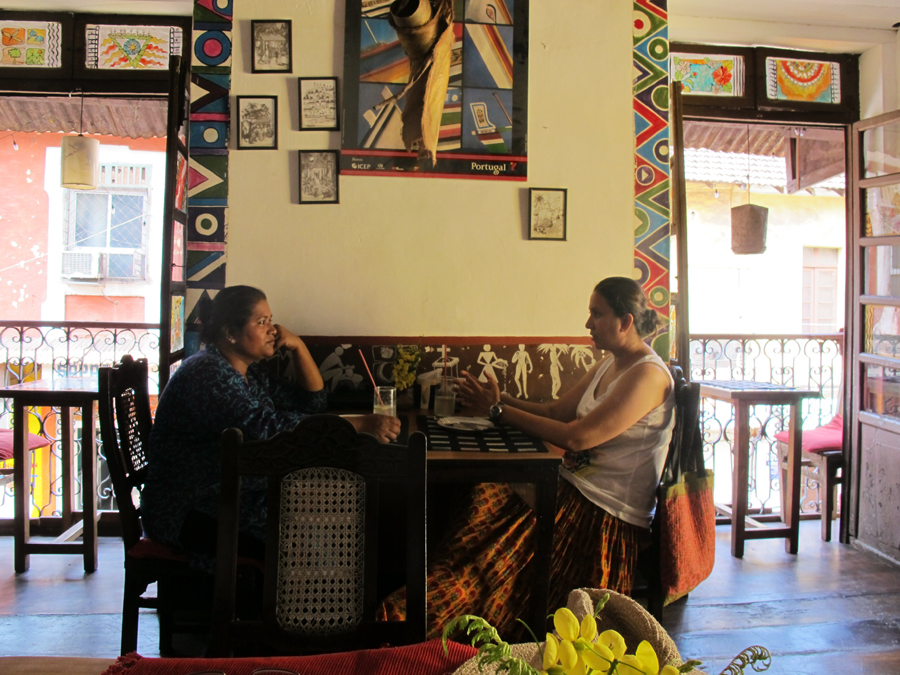
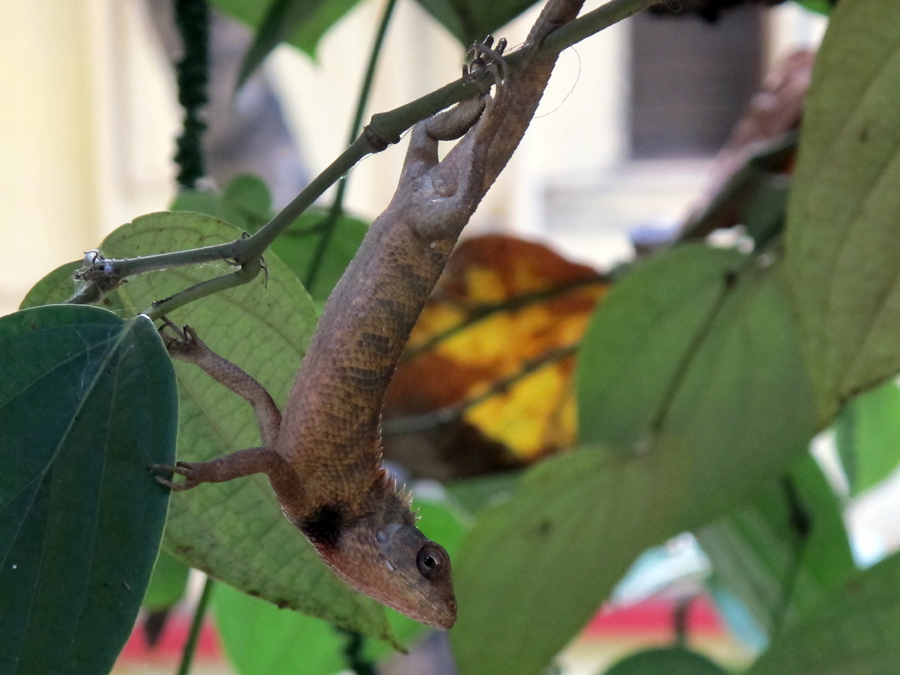
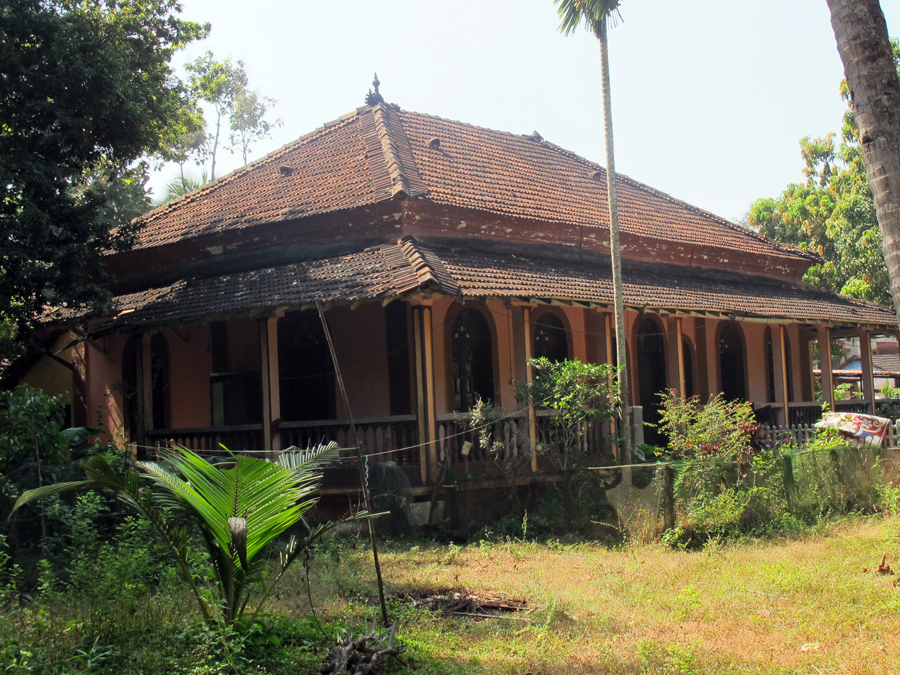
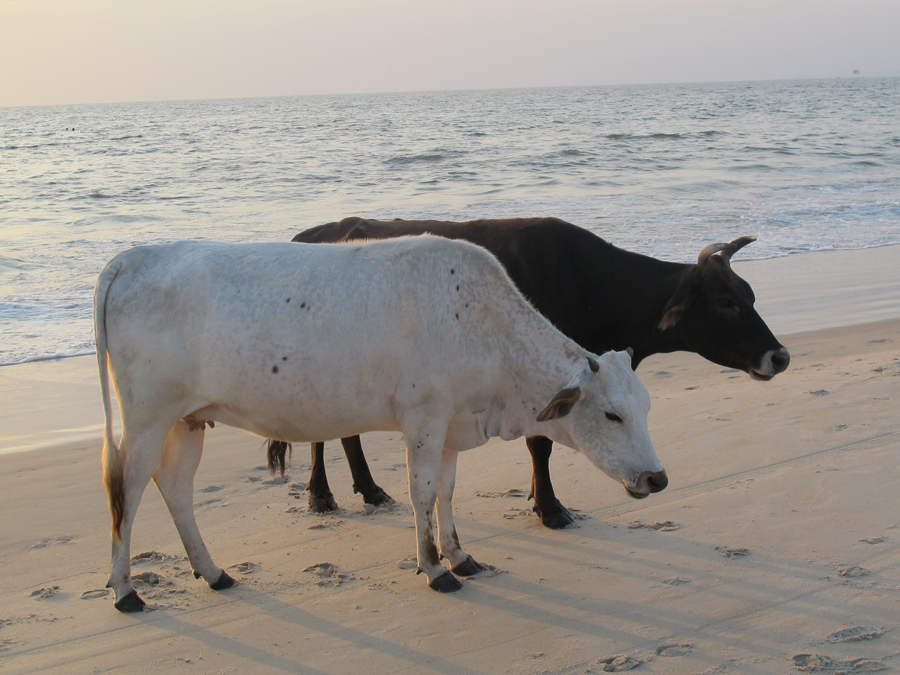
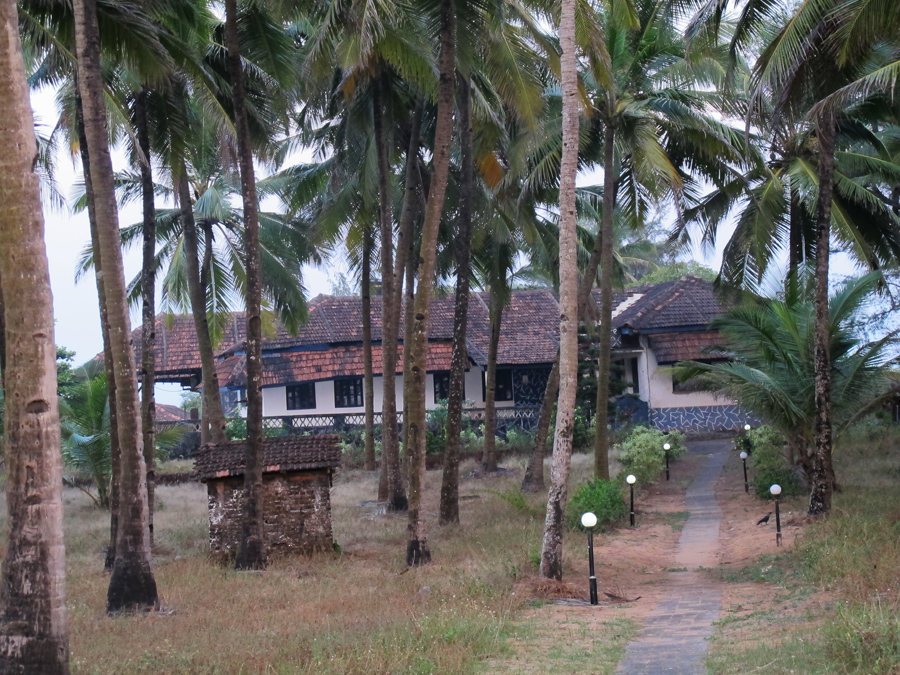
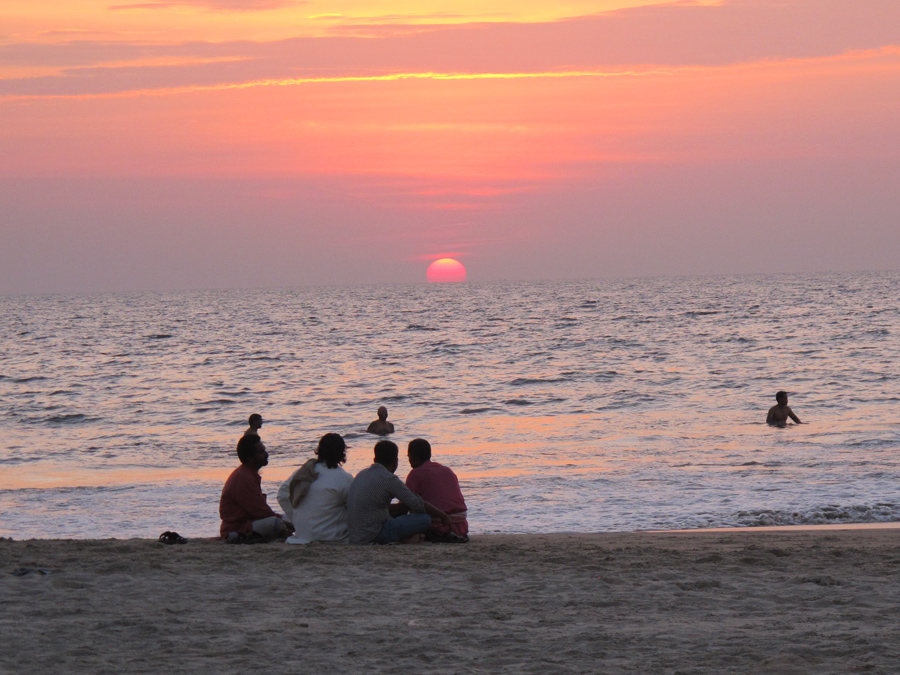
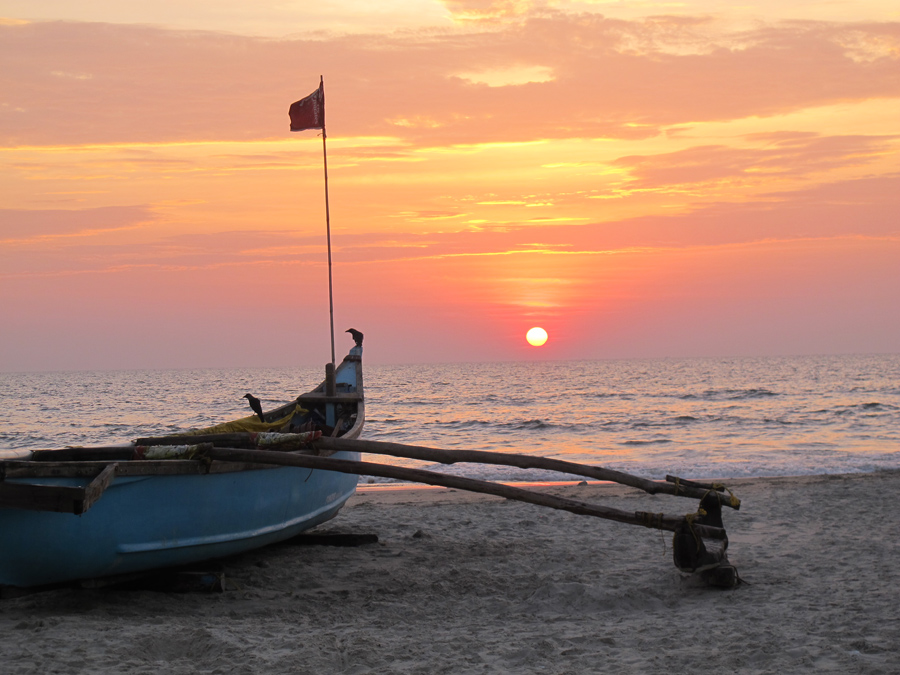
Loved this picture of life in and around Goa. I felt almost liquidly languorous as I read. (Or was that the effect of the two glasses of wine?) Some beautifully descriptive photos to support the poetic images evoked in your words. I will probably never go to India again (having a love affair with France, Italy and Austria) but I feel so close to it through your writing. It is deepening my understanding of these places which I am really enjoying and appreciating.
Haha Marilyn, love the ‘liquidly langourous’! I’m really pleased you are vicariously enjoying our India travels. Perhaps that is one of the best ways to experience India, I occasionally think! I hope that I too can one day have a love affair with France and Italy, if I can persuade a certain relative of yours to come along! The photos of the sunset are good aren’t they -I was impressed myself at how vivid it is.
Dear Julie & Michael,
I am so sorry to hear of your terrible accident. (I just learnt of the bare details today at UNE.) How are you both? I can only imagine some of the pain, distress and shock you must be going through. I hope whatever surgery you need is successful and that you both can get home as soon as possible. All my love and thoughts are with you. You are a dear friend Julie. Take care, and again, I am deeply sorry to hear of this.
Denise